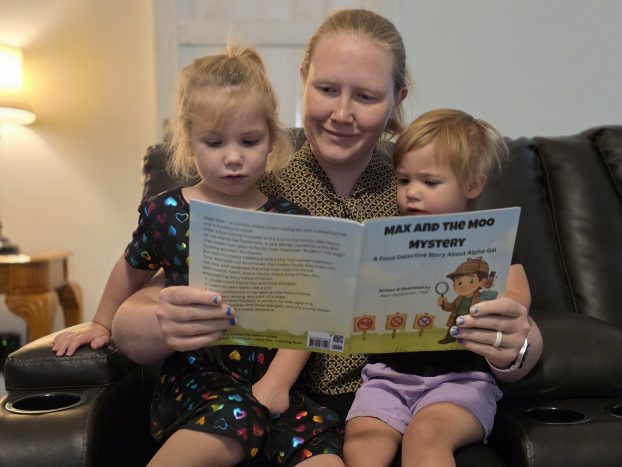Her thoughts — African American ingenuity
Published 5:00 pm Friday, February 4, 2022
|
Getting your Trinity Audio player ready...
|
As we celebrate African American History Month in February I am reminded about the numerous inventions created by African Americans that we have learned about over the years. We can look around and find many items that we use everyday that can be attributed to ingenuous, creative and intelligent black people that we are blessed to have benefited from their insight and innovation.
The historian in me desires to showcase a few more of these inventors. Let’s meet Sarah Marshall Boone born in 1832 in Craven County, North Carolina into slavery. On Nov 25, 1847 she married James Boone and in this union they had eight children. Sarah desired to improve how women could iron their clothes sleeves more easily so on April 26, 1892 she invented improvements to the ironing board. Sarah died in 1904 in New Haven, Connecticut.
In the field of agriculture Henry Blair was a true innovator. Born in 1807 Blair invented the seed planter on Oct. 14, 1834 and the cotton planter on Aug. 31, 1836. Blair passed away in 1860.
Trending
Janet Bashem was born in 1947 and made great strides as an entrepreneur. She has the distinction of being the first African American woman to receive a patent as a web based software inventor which involves tracking software.
When researching these inventors I discovered that the information about Judy Woodford Reed could only be gathered from the 1870 U. S. Census. According to this data Judy was born in 1826 near Fredericksville Parish near Charlottesville in Albemarle County. As a 44 year old seamstress she and her husband Allen, a gardener, raised five children in that city. In addition, in 1850 the family was blessed with a grandson. Between 1880 and 1885 Allen died and Judy moved to 1906 K. Street, N. W. in Washington, D. C. with her children. The Census data showed that Judy and Allen were illiterate and since it was illegal until 1863 for slaves to be taught to read and write, doing so could signify death. Moreover, documentation was signed with an “X”. Furthermore, women often used only their initials to hide their gender. In Sep. 23, 1884 Judy received a patent for a dough kneader and roller which was an improvement on an existing dough roller that enabled the mixing to be more even while the dough is covered and protected. In 1905 died but without her invention baking would have been more tedious.
Furthermore, the second African American woman to receive a patent was Miriam Elizabeth Benjamin. Born on Sep. 16, 1861 in Charleston, South Carolina Miriam was the oldest of five children (3 girls and 2 boys) raised by Francis and Eliza Benjamin. The family moved to Boston, Massachusetts where Miriam attended high school.
She attended medical school at Howard University between 1894 and 1895, yet, after obtaining legal training possibly by reading the law became an attorney. From 1888 to 1895 Miriam was employed as a teacher in the segregated school system in Washington, D. C.
On July 17, 1888 she obtained a patent for her invention the Gong and Signal Chair for Hotels. The purpose of the chair was for guests when they sat in the chair and pressed a small button on the side it would ring a bell and display the red side of a ball on the chair in back which signified which guest needed help. It would reduce the need for many waiters and attendants. In addition, Miriam lobbied for the invention to be used by the House of Representatives and subsequently, a more complicated version was installed by the House. Subsequently, this mechanism was the precursor for an airplane signaling system for passengers who sought assistance from flight attendants.
In 1920, Miriam returned to Boston where she lived and worked with her lawyer brother Edgar. A single woman throughout her life Miriam died at age 86, in 1947 in Boston.
Trending
If these inventive black men and women had not exhibited the initiative and fortitude, how to run a household, farm or partake in luxurious living would have been quite different. There are numerous inventions that African Americans have their signature on. Look around, research and celebrate the discoveries.
Judy Moore is a tour guide at The Central High Museum living in Wylliesburg and can be reached at v5agabond2@gmail.com.





